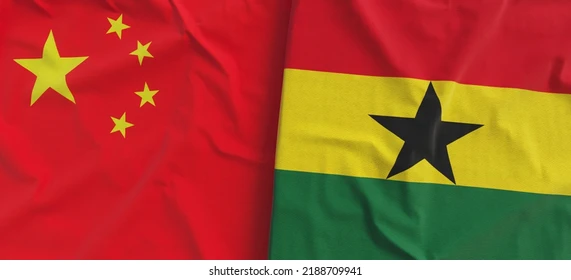The International Monetary Fund (IMF) has provided information about how Ghana’s four collateralized loans from China have put the country at risk of losing future electricity sales as well as a portion of the revenue from its mineral resources.
Since the year 2000, Ghana has relied on Chinese loans as a consistent source of funding for large-scale projects. Accra has accumulated close to $5 billion from at least 41 Chinese loans over the course of two decades.
With a current external debt portfolio exceeding $30 billion, Ghana is now debt-trapped and enduring its worst economic crisis in a generation as a result of several years of almost unrestrained borrowing.
As a result of this loan agreement, China will have the right to use Ghana’s oil, cocoa, bauxite, or even electricity sales proceeds to pay off the debt should Ghana fail to honor its debt obligations.
China appears to be the most significant party at the negotiating table in many debt negotiations taking place in the developing world. Despite being the biggest bilateral lender in the world, it is secretive when it comes to its lending practices and how it renegotiates with distressed clients.
The poorest nations on Earth would have to pay $35 billion in debt service to public and private creditors in 2022, 40% of which would be paid by China alone, according to the World Bank.
According to JoyNews’ research, the West African country has at least eight Chinese collateralized loans with a variety of minerals serving as security against default. Ghana owed China $1.9 billion as of the end of 2022, of which $619 million was in the form of secured loans.
According to the Fund, China held all of Ghana’s collateralized debt as of the end of 2022. This is related to four loan agreements that were signed in 2007–18 and totaled US$619 million to fund infrastructure projects. These loans have commodity production (cocoa, bauxite, and oil) and electricity sales as collateral.
“Collateralized debt is any contracted or guaranteed debt that gives the creditor the rights over an asset or revenue stream that would allow it, if the borrower defaults on its payment obligations, to rely on the asset or revenue stream to secure repayment of the debt” the IMF stated.

